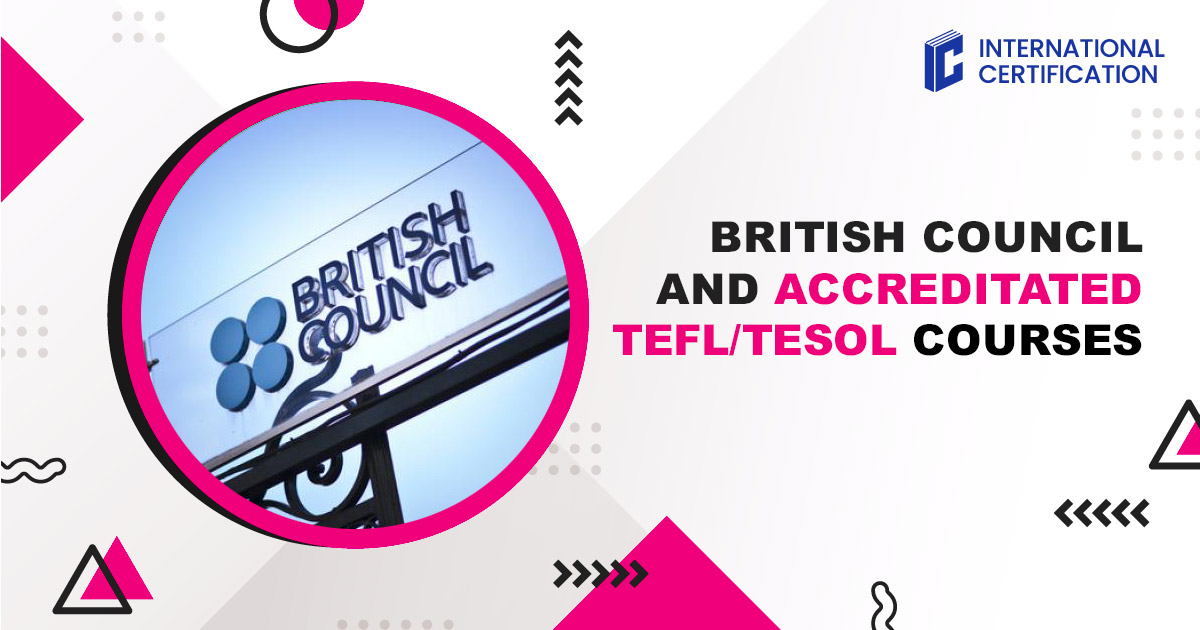And start earning money 💸 by teaching English in your own country, abroad, or online from anywhere on the planet! 🎁 Gifts and bonuses: professional support from your personal coach 🧑🏫 and job placement assistant 💼.

How to Teach English Class to Conduct Debates: The Art of Arguing Diplomatically
Table of contents
- Understanding the Importance of Debating in Language Learning
- Preparing for Debates
- Building the Necessary Skills
- 10 Public Speaking Tips for Non-Native Speakers
- 10 Critical Thinking Activities and Exercises
- Conducting the Debate
- Encouraging Diplomatic Arguing
- Reflecting on the Debate
- Conclusion. The Importance of TEFL and TESOL Certification.
Debating is an essential skill that enhances critical thinking, public speaking, and the ability to see multiple perspectives. For EFL/ESL teachers, teaching students to engage in debates can be an invaluable tool in their language learning journey. This article will guide you through the process of conducting debates in your English class, emphasizing the art of arguing diplomatically.
Understanding the Importance of Debating in Language Learning
Debating helps students to:
- Improve their speaking and listening skills.
- Enhance their vocabulary and grammar usage.
- Develop critical thinking and reasoning abilities.
- Learn to respect different viewpoints and argue respectfully.
Preparing for Debates
Choose Relevant and Engaging Topics
Select topics that are age-appropriate and culturally sensitive. Some examples include:
Should school uniforms be mandatory?
Is technology making us more isolated?
Should animals be kept in zoos?
Teach the Basics of Debating
Ensure your students understand the following:
- The structure of a debate (opening statements, rebuttals, and closing statements).
- The roles of different participants (proposition, opposition, and moderator).
- Basic debate terminology (e.g., argument, rebuttal, counterargument).
Definitions and Examples for Debate Structure, Roles, and Terminology
The Structure of a Debate
Opening Statements
Definition: The initial part of the debate where each side presents its main arguments and position on the topic.
Example: In a debate about whether school uniforms should be mandatory, the proposition might start with, "We believe school uniforms should be mandatory because they promote equality and reduce distractions."
Rebuttals
Definition: The section where each side responds to the opposing arguments, attempting to disprove or weaken them.
Example: In response to the proposition's opening statement, the opposition might say, "While uniforms may promote equality, they can also suppress individuality and impose unnecessary financial burdens on families."
Closing Statements
Definition: The final part of the debate where each side summarizes their main points and reinforces their position.
Example: The proposition might conclude with, "In summary, mandatory school uniforms create a focused learning environment and bridge the gap between students from different economic backgrounds."
The Roles of Different Participants
Proposition
Definition: The team or individual arguing in favor of the resolution or topic.
Example: In a debate about banning plastic bags, the proposition would argue why plastic bags should be banned, citing environmental concerns and alternatives.
Opposition
Definition: The team or individual arguing against the resolution or topic.
Example: In the same debate about banning plastic bags, the opposition would argue why plastic bags should not be banned, perhaps focusing on the convenience and economic implications.
Moderator
Definition: The neutral party responsible for overseeing the debate, ensuring rules are followed, and managing time.
Example: The moderator introduces the topic, outlines the structure, enforces time limits, and ensures a respectful and orderly discussion.
Basic Debate Terminology
Argument
Definition: A statement or series of statements presented by a participant to support their position.
Example: "Plastic bags should be banned because they contribute significantly to ocean pollution and harm marine life."
Rebuttal
Definition: A counterstatement that addresses and attempts to disprove the opponent's arguments.
Example: "While it’s true that plastic bags contribute to pollution, banning them might lead to increased use of other harmful materials, like paper bags."
Counterargument
Definition: An argument made to oppose another argument, often presented in anticipation of the opponent's points.
Example: "Some may argue that banning plastic bags is too costly, but the long-term environmental benefits far outweigh the short-term financial impacts."
Using these definitions and examples will help your students understand the fundamentals of debate structure, roles, and terminology, enabling them to participate more effectively and confidently in class debates.
💡 Unlock the secrets to doubling your teaching income with our exclusive checklist! 🎯 This checklist is designed for English teachers who want to 📈 attract more students and 🔥 keep them engaged for the long term.
Building the Necessary Skills
Argumentation Skills
Teach students how to build a strong argument:
- Start with a clear statement of their position.
- Provide evidence and examples to support their argument.
- Anticipate counterarguments and prepare responses.
- Examples for Building a Strong Argument in a Debate
Start with a Clear Statement of Their Position
Example:
"We believe that school uniforms should be mandatory in all schools."
Provide Evidence and Examples to Support Their Argument
Example:
"Mandatory school uniforms can reduce bullying and peer pressure. For instance, a study by the National Association of Secondary School Principals found that schools with uniform policies saw a significant decrease in bullying incidents. Additionally, uniforms can promote a sense of community and school spirit. Schools like Lincoln High reported increased student participation in school events and a stronger sense of belonging among students after implementing a uniform policy."
Anticipate Counterarguments and Prepare Responses
Example:
"Some might argue that mandatory uniforms suppress individuality and creativity. However, students can still express themselves through their choice of accessories, hairstyles, and after-school activities. Moreover, the primary purpose of school is education, and uniforms help create an environment where students can focus more on learning and less on fashion competition. Another counterargument could be the financial burden on families, but many schools provide financial assistance or uniform swaps to mitigate this issue. Ultimately, the benefits of reducing bullying and fostering a focused learning environment outweigh these concerns."
Example for Building a Strong Argument in a Debate for Adult Students
Start with a Clear Statement of Their Position
Example:
"We believe that remote work should be a standard option for all employees in the modern workplace."
Provide Evidence and Examples to Support Their Argument
Example:
"Remote work increases productivity and job satisfaction. A study by Stanford University found that employees who worked from home were 13% more productive than their office-based counterparts. Furthermore, remote work offers flexibility that can improve work-life balance. For example, a survey by FlexJobs reported that 65% of remote workers feel more productive and less stressed. Additionally, companies like Buffer and GitLab have successfully implemented remote work policies, citing improved employee retention and reduced overhead costs as significant benefits."
Anticipate Counterarguments and Prepare Responses
Example:
"Some may argue that remote work leads to feelings of isolation and a lack of team cohesion. However, with the proper use of technology, such as regular video conferences and team-building activities, these issues can be mitigated. Another potential concern is the difficulty in monitoring employee performance. Yet, the focus should shift from monitoring hours worked to evaluating outcomes and productivity. Companies like Automattic, the parent company of WordPress, have demonstrated that with clear goals and expectations, remote teams can thrive and even outperform traditional office settings. Thus, the advantages of offering remote work as a standard option far outweigh the potential drawbacks."
Critical Thinking
Encourage students to:
- Analyze the topic from different angles.
- Identify logical fallacies and weak points in arguments.
- Develop well-rounded viewpoints.
Public Speaking
Help students improve their public speaking skills:
- Practice clear and confident speaking.
- Work on pronunciation and intonation.
- Use body language and eye contact effectively.
10 Public Speaking Tips for Non-Native Speakers
Practice Regularly: Consistent practice helps build confidence. Use language learning apps, join a speaking club, or practice with friends.
Prepare Thoroughly: Know your material well. Organize your speech with a clear introduction, body, and conclusion.
Speak Slowly and Clearly: Avoid rushing your words. Speaking slowly helps with pronunciation and allows the audience to understand you better.
Use Simple Language: Avoid complicated words and jargon. Simple, clear language is more effective for conveying your message.
Focus on Pronunciation: Practice difficult words and sounds. Use online resources or work with a language coach to improve your pronunciation.
Use Visual Aids: Slides, charts, and videos can help convey your message and take the focus off your speaking.
Engage with Your Audience: Make eye contact, ask questions, and encourage participation to make your speech more interactive.
Handle Nervousness: Practice deep breathing, visualize success, and remind yourself that it's okay to make mistakes.
Seek Feedback: After your speech, ask for constructive feedback from peers or mentors to identify areas for improvement.
Learn from Others: Watch and analyze speeches by Procient speakers, both native and non-native, to pick up tips and techniques.
10 Critical Thinking Activities and Exercises
Debate Sessions: Organize debates on various topics. This helps students learn to form arguments, anticipate counterarguments, and think on their feet.
Case Studies: Analyze real-life case studies and discuss possible solutions and their implications. This encourages analytical thinking and problem-solving.
Brainstorming Sessions: Encourage group brainstorming to generate ideas for a specific problem or topic. This promotes creative thinking and collaborative problem-solving.
Socratic Seminars: Conduct discussions where students ask and answer questions to stimulate critical thinking and draw out ideas.
Mind Mapping: Use mind maps to visually organize information, which helps in understanding relationships between concepts and ideas.
Role-Playing: Assign roles and simulate real-life scenarios. This helps in understanding different perspectives and developing empathy.
Critical Reading: Analyze and critique articles, essays, or news stories. Focus on identifying biases, assumptions, and logical fallacies.
Ethical Dilemmas: Present ethical dilemmas and discuss possible actions and their consequences. This encourages moral reasoning and decision-making.
Reflection Journals: Have students keep journals where they reflect on their learning experiences, thoughts, and insights. This promotes self-awareness and critical self-assessment.
Problem-Solving Challenges: Present complex problems without clear solutions and encourage students to find innovative ways to address them. This fosters resilience and creative problem-solving skills.
These tips and exercises can significantly enhance public speaking and critical thinking skills, making non-native speakers more confident and effective communicators.
🚀 More students, 💰 higher income, 🌍 complete freedom! ✅ 112 verified platforms with top rates ⏳ Flexible schedule – work whenever and as much as you want 🎯 Simple requirements – start earning right away 💎 Boost your career and income by teaching students worldwide!
Conducting the Debate
Set the Rules and Structure
Establish clear rules for the debate, including:
- Time limits for each part of the debate.
- Guidelines for respectful communication.
- Criteria for judging the debate (if applicable).
Role Play and Practice
Before the actual debate, have students practice:
- Role-playing different positions.
- Engaging in mock debates on less formal topics.
Moderating the Debate
As the teacher, act as the moderator:
- Introduce the topic and participants.
- Ensure the debate stays on track and within time limits.
- Facilitate respectful and orderly discussion.
Encouraging Diplomatic Arguing
Teaching Respectful Communication
Emphasize the importance of:
- Listening to others without interrupting.
- Addressing arguments, not attacking individuals.
- Using polite language and tone.
Handling Disagreements
Guide students on how to:
- Disagree respectfully and constructively.
- Use phrases like "I understand your point, but…" or "That's an interesting perspective, however…".
- Stay calm and composed, even when facing strong opposition.
Providing Constructive Feedback
After the debate, provide feedback on:
- The strengths and weaknesses of their arguments.
- Their use of language and communication skills.
- Their ability to engage in respectful and diplomatic discourse.
Reflecting on the Debate
Self-Evaluation
Encourage students to reflect on their performance by asking questions like:
- What did I do well?
- What areas can I improve?
- How can I better support my arguments in the future?
Group Discussion
Facilitate a group discussion to:
- Share thoughts and experiences.
- Discuss what they learned from the debate.
- Reflect on the importance of respectful and diplomatic arguing.
Conclusion. The Importance of TEFL and TESOL Certification.
Teaching debates in an EFL/ESL classroom not only enhances language skills but also equips students with essential life skills. By focusing on the art of arguing diplomatically, you foster an environment of respect, critical thinking, and effective communication. Through careful preparation, skill-building, and reflection, your students will become confident and articulate debaters, ready to tackle complex issues with poise and diplomacy.
Moreover, obtaining TEFL (Teaching English as a Foreign Language) or TESOL (Teaching English to Speakers of Other Languages) certification is crucial for teachers who want to excel in this field. These certifications provide in-depth knowledge and practical skills essential for teaching English effectively. They cover a wide range of topics, including language acquisition theories, lesson planning, classroom management, and assessment techniques. Certified teachers are better equipped to create engaging and impactful lessons, such as debates, that cater to the diverse needs of their students.
Incorporating these elements into your teaching not only benefits your students but also enhances your professional development. With a TEFL or TESOL certification, you demonstrate your commitment to quality education and open up more career opportunities worldwide. Therefore, investing in these certifications is a vital step towards becoming a more effective and successful EFL/ESL teacher.
Terms used:
EFL, ESL, TEFL

York Fern
An English instructor with 12+ years of experience. I work for an online school and travel the world, teaching students from various countries, leveraging my TEFL/TESOL certification. Seeing the world's oceans, mountains, and cities with my own eyes has given me a profound appreciation for the importance of quality education and international communication.
and start earning by teaching English in your country, abroad, or online from anywhere in the world! Order the course with a 50% discount 💸 and receive as a gift the support of a personal coach 👨🏫 and job placement assistant! 🎁🚀 Hurry, limited spots available! 🏃♂️💨
💡 Unlock the secrets to doubling your teaching income with our exclusive checklist! 🎯 This checklist is designed for English teachers who want to 📈 attract more students and 🔥 keep them engaged for the long term.
🚀 More students, 💰 higher income, 🌍 complete freedom! ✅ 112 verified platforms with top rates ⏳ Flexible schedule – work whenever and as much as you want 🎯 Simple requirements – start earning right away 💎 Boost your career and income by teaching students worldwide!
choose us?



